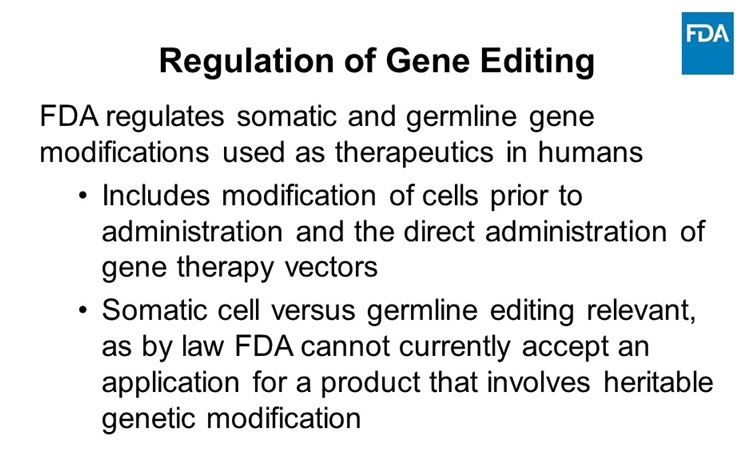Gene Editing Governance: Navigating Regulatory Landscapes

Gene Editing Governance: Navigating Regulatory Landscapes
The Promise and Peril of Genetic Editing
Genetic editing technologies hold immense promise in transforming medicine, agriculture, and various scientific fields. However, the power to alter the genetic code also raises profound ethical and safety concerns. In response, regulatory frameworks are crucial in guiding the responsible development and application of genetic editing technologies.
Understanding Genetic Editing Technologies
Before delving into regulatory aspects, it’s essential to grasp the diversity of genetic editing tools available. CRISPR-Cas9, TALENs, and zinc-finger nucleases are among the prominent technologies enabling precise modifications to DNA. These tools offer unprecedented capabilities to edit genes, correct genetic disorders, and potentially enhance various biological traits.
Early Regulatory Responses
As genetic editing technologies advanced, regulatory bodies globally faced the challenge of keeping pace with innovation. Early responses involved adapting existing biotechnology regulations to cover genetic editing. However, the unique precision and potential far-reaching consequences of genetic editing necessitated a more nuanced and dedicated regulatory approach.
Ethical Considerations and Public Dialogue
The ethical dimensions of genetic editing are complex and multifaceted. Regulatory frameworks must address questions of consent, equity, and the potential for unintended consequences. Public dialogue and engagement become integral in shaping regulations that reflect societal values and ensure that the applications of genetic editing align with ethical standards.
Human Germline Editing: A Controversial Frontier
One of the most contentious areas is the editing of human germline cells, which pass genetic modifications to future generations. The potential to eradicate genetic diseases is weighed against concerns of “designer babies” and unintended consequences. Regulatory bodies face the challenge of striking a balance that allows progress while preventing unethical or unsafe applications.
Agricultural and Environmental Implications
Beyond human applications, genetic editing has transformative potential in agriculture. Regulatory frameworks must address issues related to modified crops, their environmental impact, and the potential for unintended ecological consequences. Striking a balance between innovation and environmental stewardship is a central challenge in crafting effective genetic editing regulations.
Global Collaboration in Regulatory Frameworks
Genetic editing technologies transcend national borders, requiring international collaboration in regulatory efforts. Harmonizing standards and fostering cooperation among regulatory bodies are crucial steps in addressing the global nature of genetic editing research, development, and applications. Shared guidelines contribute to ethical and responsible practices on a global scale.
Ensuring Safety and Efficacy
Regulatory frameworks play a pivotal role in ensuring the safety and efficacy of genetic editing applications. Rigorous testing, transparent reporting, and adherence to established safety standards are essential components. By establishing clear guidelines, regulatory bodies contribute to building public trust and confidence in the responsible use of genetic editing technologies.
Impact on Biomedical Research and Therapeutics
Genetic editing has opened new frontiers in biomedical research and therapeutic interventions. The potential to cure genetic diseases, develop personalized medicine, and enhance human health is vast. Regulatory bodies must adapt to the dynamic nature of these advancements, fostering innovation while safeguarding against ethical lapses and safety concerns.
Genetic Editing Regulations Resource
For those seeking comprehensive insights into genetic editing regulations, Genetic editing regulations serve as a valuable resource. This platform provides updates on regulatory developments, ethical considerations, and the evolving landscape of genetic editing governance. Stay informed to contribute to the responsible and ethical development of genetic editing technologies.
Anticipating Future Challenges
As genetic editing continues to advance, regulatory challenges will evolve. The dynamic nature of biotechnology demands continuous adaptation in regulatory frameworks. Anticipating future challenges involves proactive engagement with emerging technologies, ongoing public dialogue, and agile regulatory responses that balance innovation with ethical and safety considerations.
Conclusion: Striking a Balance for Responsible Innovation
Genetic editing holds immense potential to shape the future of healthcare, agriculture, and beyond. Striking a balance between fostering innovation and ensuring responsible use requires robust regulatory frameworks. As technologies evolve, regulatory bodies play a central role in guiding the ethical, safe, and equitable application of genetic editing for the benefit of society.











